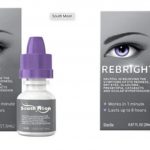
TUESDAY, Feb. 13Two of the most common pregnancy complications for women, high blood pressure and gestational diabetes, could jeopardize the future heart health of their children, a new study suggests. Researchers found that the children of women who developed either or both of those conditions during pregnancy showed signs of less-than-ideal heart health before the age of 12. “Through our research, we’ve found an association between diabetes and high blood pressure during pregnancy and indicators of compromised heart health in children on the cusp of adolescence,” said study lead author Dr. Kartik Venkatesh, director of the Diabetes in Pregnancy Program at Ohio State University’s Wexner Medical Center. “This underscores the potential for interventions aimed at averting or managing these health issues before they escalate in adulthood.” In the study, his team looked at 3,317 mothers and their children. Among the mothers, 8% developed high blood pressure during pregnancy, 12% developed diabetes and 3% developed both high blood pressure and diabetes. Researchers then looked at the heart health of their children between the ages of 10 and 14. They measured factors like body-mass index, blood pressure, total cholesterol and blood sugar levels. They found that before the age of 12, more than half of the children (55.5%) had at least one factor that put them at greater risk for heart disease and stroke. The findings were… read on > read on >





























-300x200.jpg)







-300x169.jpg)
